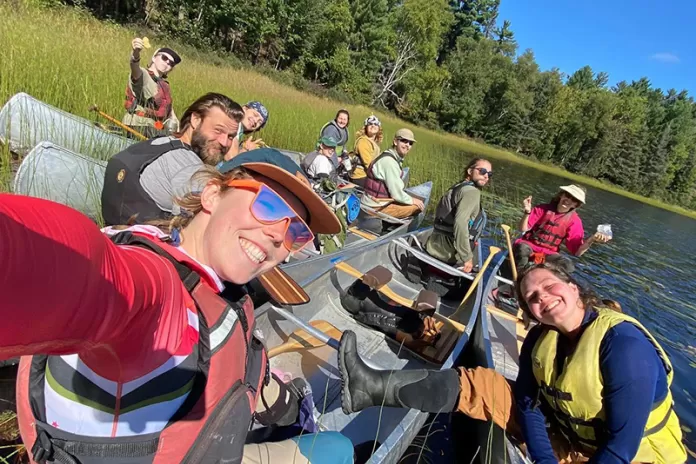Camp Widjiwagan
Founded in 1929, Camp Widjiwagan has been providing transformative wilderness experiences for youth from the edge of the Boundary Waters Canoe Area Wilderness in northeastern Minnesota.
Our mission is to develop, in young people, respect for self, community and the environment, through wilderness adventure and environmental education. We strive to build upon the Y's core values as part of our Camp Culture and Community Commitment.
Widjiwagan’s program focus is wilderness and teens. In the summer, we provide wilderness canoeing and backpacking trips throughout North America for teens ages 11–18. During the school year, our Outdoor Learning Program works with schools and groups to teach outdoor education, recreation and community building.
This business operates on behalf of the Boundary Waters Canoe Area Wilderness program within the Superior National Forest. As a BWCAW Program Cooperator, this business is an equal opportunity service provider.
What to Expect
Learn more about the teen wilderness experience, from essential eligibility requirements to health and safety details.
Registration
See what's available at our location, including rates, dates, and program descriptions.
Preparation
Download the definitive source of truth for preparing to attend our location.
Seasonal Adventures

Our Team
As leaders and friends, our team embodies the YMCA way.
Our Camp Story
We are part of a family. And like any family member, our camp has a unique personality and some distinct characteristics.

Giving Opportunities
Creating welcoming and supportive spaces takes a village. We would love for you to support and be part of ours.
Contact Us
Whether you have a question or are ready to plan, we have the answers and are prepared to assist.
Financial Assistance
The YMCA offers need-based financial assistance to help people access the programs that are important to them.
Special Accommodations
We are committed to improving access to our programs and spaces for all.





